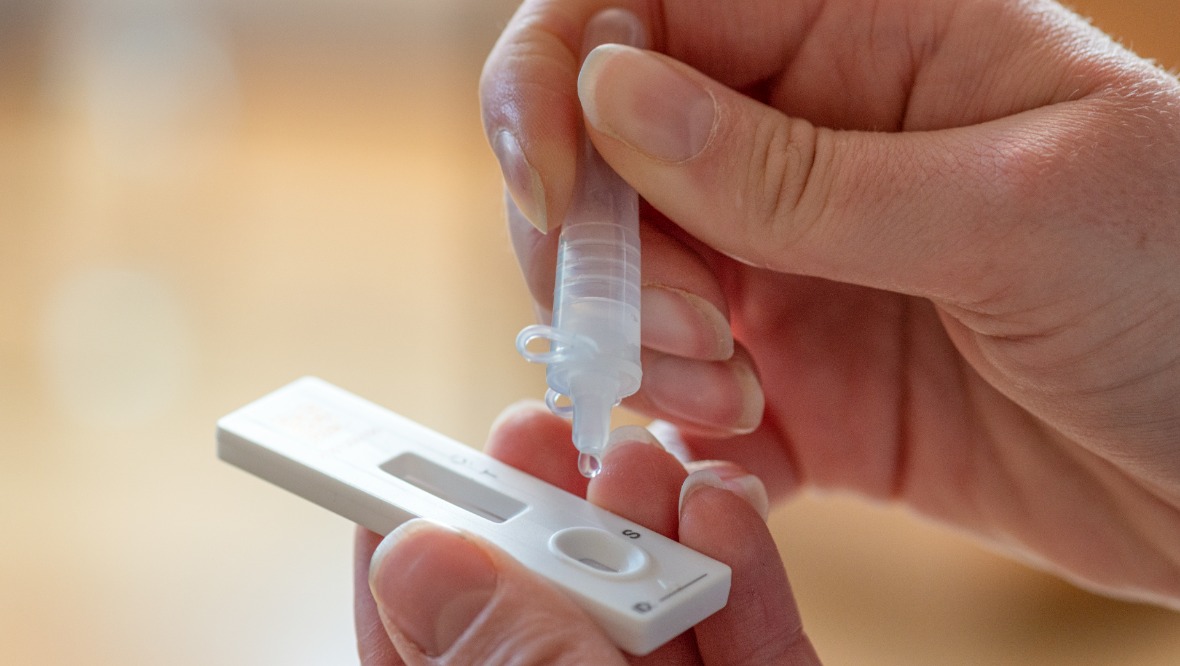Coronavirus cases could peak in the next couple of weeks in Scotland, a public health expert has said.
Dr Christine Tait-Burkard, of the University of Edinburgh, said keeping the requirement for face coverings is in line with dealing with the surge in cases of the BA.2 sub-variant of Omicron.
Her comments come after the First Minister delayed ditching laws for people to wear face coverings on public transport and shops, having previously signalled this would move from being a legal requirement to being guidance, on March 21.
On Tuesday, Nicola Sturgeon told MSPs that with the “current spike” in cases, ministers had agreed it was “prudent” for this measure to remain in place and the legal requirement will be reviewed again in two weeks’ time.
The BA.2 sub-variant of Omicron now makes up more than 80% of coronavirus cases in Scotland and appears to have become dominant faster than in England.
Asked whether it was prudent to keep the requirement for face coverings, Dr Tait Burkard told BBC Scotland’s Good Morning Scotland programme: “It is indeed kind of line with what we are seeing with the new sub-variant of Omicron which is a very big spike in cases, in fact we have the most cases in the population at this point than ever before in the pandemic.
“It’s also realistic to look at this from about a two-week perspective because what we are seeing in the numbers is that we could probably peak this week or the week thereafter in terms of cases, and we would actually see an easing and a clear indication before lifting face masks, and that’s kind of our last barrier to go, and also our last reminder to go.
“And at the same time it is a relatively easily-achieved measure that has less impact on the economy. Whilst it might deter some people from going out, it might incentivise others for going out. I think there’s a difficult balance to take there.”
There were 1996 people in hospital on Monday with recently confirmed Covid-19, up 191 on the previous day, with 33 in intensive care, up six.
That is higher than the Omicron peak of 1571 which was recorded in January this year, with more patients in hospital than at any time since January 27 last year when the total was 2016.
Dr Tait Burkard, a research fellow at the University of Edinburgh’s Roslin Institute and an expert on coronaviruses, said that while masks help reduce virus levels in public places they are less effective against Omicron.
She suggested that vulnerable people should be advised to upgrade their masks to FFP2 or N95 masks for more protection.
The academic said: “The impacts that the mask wearing makes without many of the other restrictions in place is small, or it’s smaller than it ever was before.
“One (reason) is that unfortunately with Omicron the kind of less protective masks, the simple surgical masks, the thin ones that you just ring round your ears, the fabric ones, they’re not as protective as they were against the previous variants, just because we need to inhale less of the virus to get infected, so both time of exposure needed to get infected is less, but they still help reducing virus level in public places, and especially for vulnerable people that can make the difference.
“But there should be also the advice that for vulnerable people it might be a good moment, or probably a very pertinent moment, to upgrade masks to so-called FFP2 or N95 masks, the thicker ones that fit very closely around your face to protect yourself more than others.”
Follow STV News on WhatsApp
Scan the QR code on your mobile device for all the latest news from around the country


 iStock
iStock
























